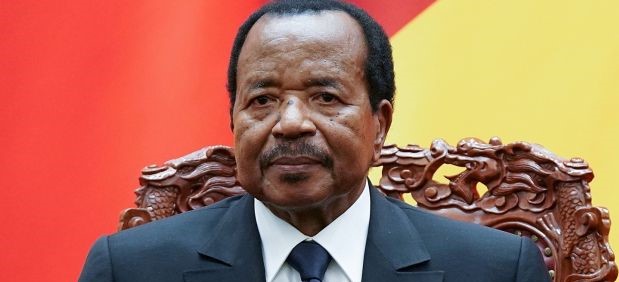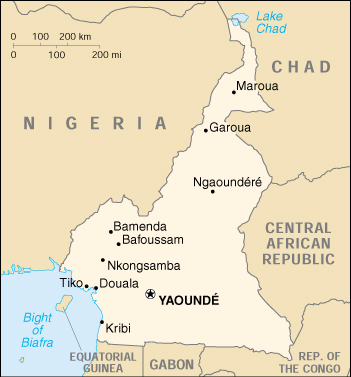Cameroon’s Violent Elections
October 10, 2018 | Expert Insights

As Africa’s oldest president campaigns for another term in Cameroon, a violent uprising simmers in parts of the country.
Background
Cameroon’s 85-year-old president, Paul Biya, is Africa’s oldest head of state. He has presided over a state being slowly pushed towards an uprising by the increasing repression they face at the hands of the ruling party. At the country’s Unity Day in May, members of the main opposition party, the Social Democratic Front, marched past the president they showed their indignation. Placards were banned, so the marchers pulled up their shirts to expose pictures taped to their bodies of people allegedly tortured, mutilated or murdered by the government.
Mr. Biya, who became president in 1982, is now running for his seventh term in office (presidents in Cameroon serve for a period of seven years). Presidential elections were held on 7 October. The next day, while votes were still being counted, Maurice Kamto, leader of one of the seven opposition parties hoping to displace president Biya, declared himself the winner of the presidential election.

Analysis
Cameroon’s main opposition candidate has claimed victory in Sunday's presidential polls despite a government warning not to announce unofficial results. "I was charged with taking a penalty, I took it and I scored," said Movement for the Rebirth of Cameroon (MRC) candidate Maurice Kamto, at a news conference on Monday in Yaounde.
"I have received a clear mandate from the people and I intend to defend it until the end," he said. "I invite the outgoing president to organise a peaceful way to transfer power," Kamto added.
The opposition candidate did not give results to justify his claim, which was greeted by loud cheers from supporters as he made his announcement. Meanwhile, the deputy secretary general of the ruling-Cameroon People's Democratic Movement, Gregoire Owona, has accused Kamto of breaking the law.
"It is not right at all to announce this. He hasn't won anything at all. It's totally illegal," he said, adding that it was too early to say if anyone had won."Kamto was not even represented at all the polling stations, (so) it was impossible for him to count all the votes," he added.
By law, each polling station must submit its results after verification by the electoral commission, to the Constitutional Court which is responsible for announcing the official tally within 15 days. Ahead of the polls, Kamto formed a coalition with the marginal opposition People's Development Front (FDP) but was still seen as unlikely to threaten President Paul Biya's 35-year grip on power.
The main opposition Social Democratic Front contender, Joshua Osih, did not participate in the coalition. The counting of votes has not been concluded in an election expected to return Biya for a seventh term. If he does not win, the candidate to replace him will be Cameroon’s third new president since the country gained independence from France in 1960.
Opposition allegations that the election was rigged to favour President Paul Biya and violence amid the Anglophone rebellion in the country's west marred election day. Voters in Cameroon's troubled north and southwest regions stayed away from Sunday's elections as violence broke out between security forces and armed separatists.
Those in Anglophone areas struggled to reach a ballot box: armed separatist groups vowed to stop the election from happening there, and have potentially silenced up to five million English-speaking voters in the majority French-speaking country of about 24 million.
Assessment
Our assessment is that whichever candidate emerges victorious must take tangible actions to diffuse tensions between warring factions. We believe that tensions between the linguistic factions have been exacerbated by the run-up to the elections; whatever the result, it is imperative that the incoming government accept humanitarian aid and settles the dispute, and diverts national security forces back towards containing the threat posed by Boko Haram. As we have stated earlier, failure to do so could precipitate a civil war.
Read more:








Comments